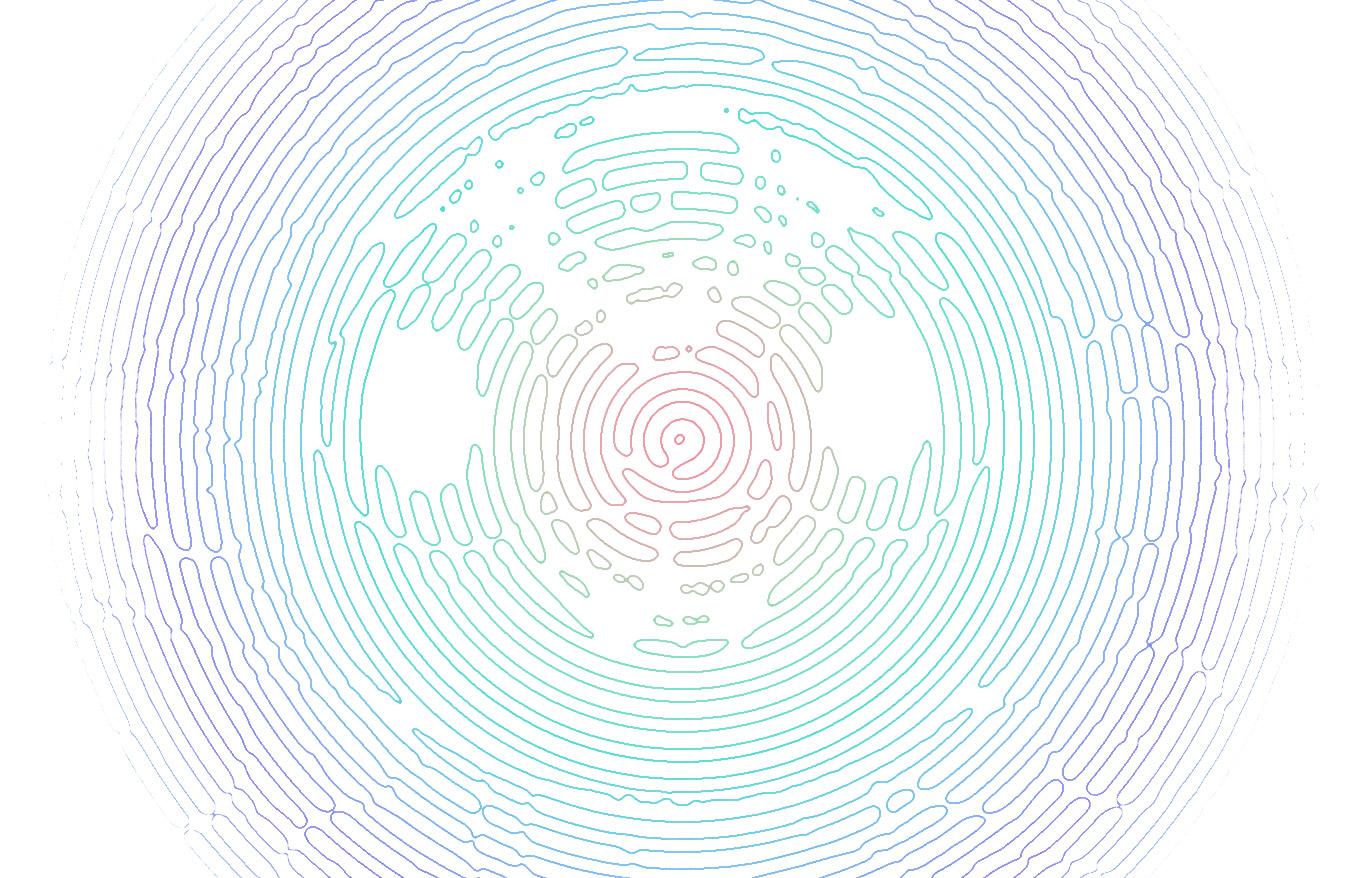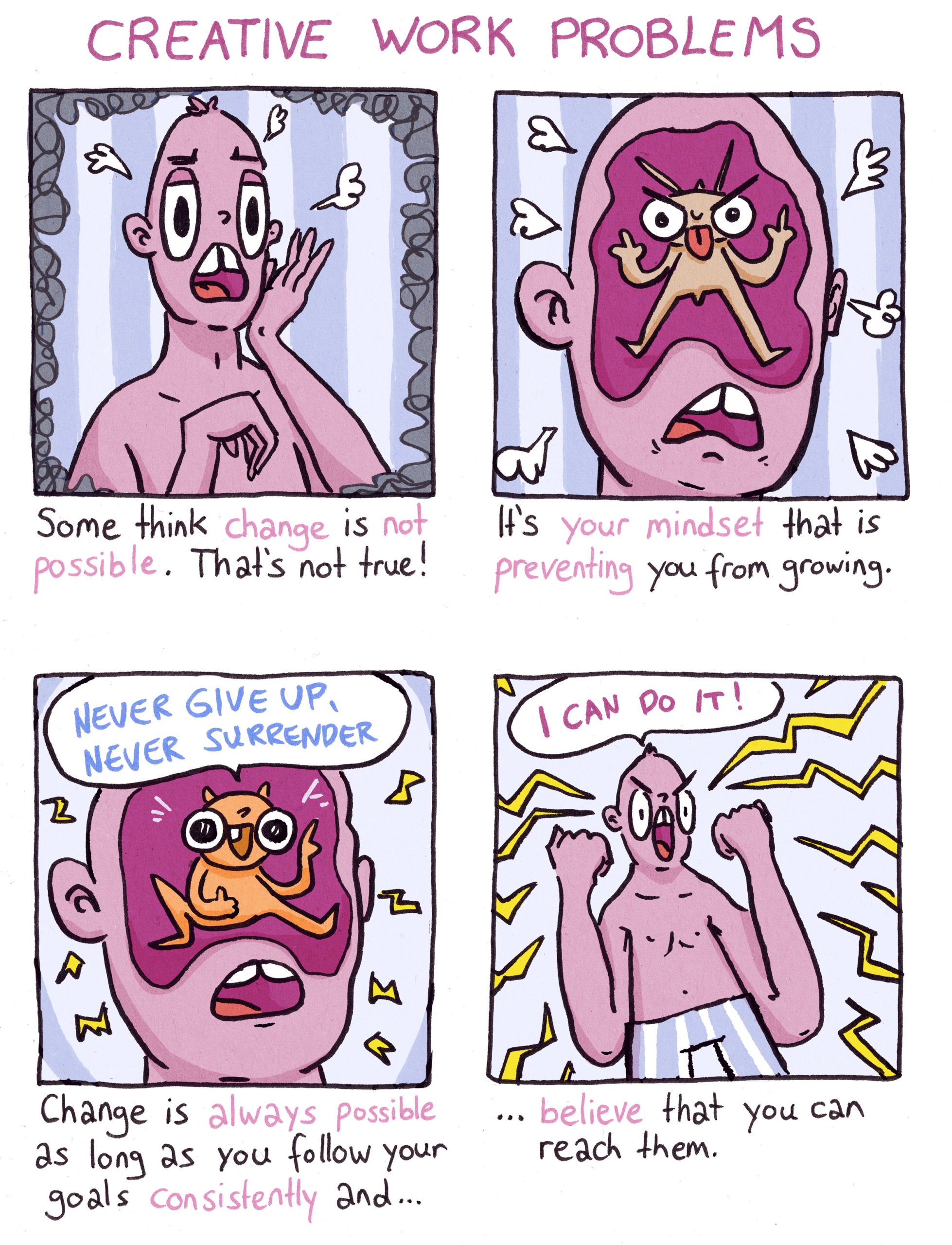
I cannot be creative if I am too stressed or not in the right emotional state. In today’s world, many people experience stress but still manage to be creative, and I’m no exception – even when I’m stressed. So what do I do to deal with it? Or rather, what do I try to do?
I call it “poor man’s Cognitive Behavioral Therapy” because it works pretty much like CBT. At least that is my understanding as a layman who has read a summary of Cognitive Behavioral Therapy once. That means don’t take this as a definitive source or professional advice.
Anyway, here’s how it works: When you’re emotionally upset, tell yourself how you want to feel in the present moment. For example, if you’re stressed and tired and don’t feel like working on your drawing, you’d say: “I am relaxed and awake and in the mood to work on my drawing”. Repeat this several times. Try to avoid negative words like “not” (for example, use “relaxed” instead of “not stressed”).
These are positive affirmations that can help challenge and overcome self-sabotaging and negative thoughts. Repeating them often and believing in them can lead to positive changes. I’ve included below some scientific research showing that this practice can improve your creative problem-solving, even under stress, and increase your overall creativity.
How To Do Positive Affirmations
- Identify the problem that is bothering you.
- Say the complete opposite of it without using negative words like “not”.
- Repeat it as often as possible throughout the day and whenever the problem arises.
- That’s it.
It may or may not help you as much as it helped me. But it is worth a try. As a tip, try to believe it. Only if your mind believes it will it come true.
A Few Of My Go-To Self-Affirmations
- I’m having fun – In situations where I’m struggling to work on something that isn’t fun.
- I can do it – When I doubt myself. I say it every time I meditate (I do autogenic training)
- I am calm and relaxed – In stressful situations. Often needed in public places because of my anxiety.
- I’m a pro – I got it from “The War of Art” by Steven Pressfield. Just so I take myself more seriously when I create things.
- It’s the fixed mindset – from the book ‘Growth Mindset’ by Carol Dweck. I use it when I try to avoid things, procrastinate or have self-doubt.
- I’m fit and awake – When I’m tired and still want to focus on something.
- I am a patient person – When I lose my patience.
- This effort is pleasant – When I am doing something really hard. Should release some dopamine after a while, according to a podcast by Andrew Huberman.
- Mistakes are OK – When I’m drawing crap again.
More To Read
If you enjoyed this topic, you might find these related posts helpful:
- How Self-Efficacy Can Help You Succeed! – Explore how believing in your abilities can boost your confidence and drive, leading to greater success in your creative endeavors.
- Play the Role of Your Future Self – Learn how envisioning your future self can guide your current decisions and actions, helping you stay motivated and focused on your goals.
Both posts offer valuable insights to enhance your creative journey and personal growth.
Sources
David R. de Buisonjé, Simone M. Ritter, Suze de Bruin, J. Marie-Louise ter Horst & Arne Meeldijk (2017) Facilitating Creative Idea Selection: The Combined Effects of Self-Affirmation, Promotion Focus and Positive Affect, Creativity Research Journal, 29:2, 174-181, DOI: 10.1080/10400419.2017.1303308
M. Dutcher, Janine (2018). Improving Performance on a Creativity Task via Self-Affirmation. Carnegie Mellon University. Thesis. https://doi.org/10.1184/R1/6686096.v1
Creswell JD, Dutcher JM, Klein WMP, Harris PR, Levine JM (2013) Self-Affirmation Improves Problem-Solving under Stress. PLOS ONE 8(5): e62593. https://doi.org/10.1371/journal.pone.0062593
